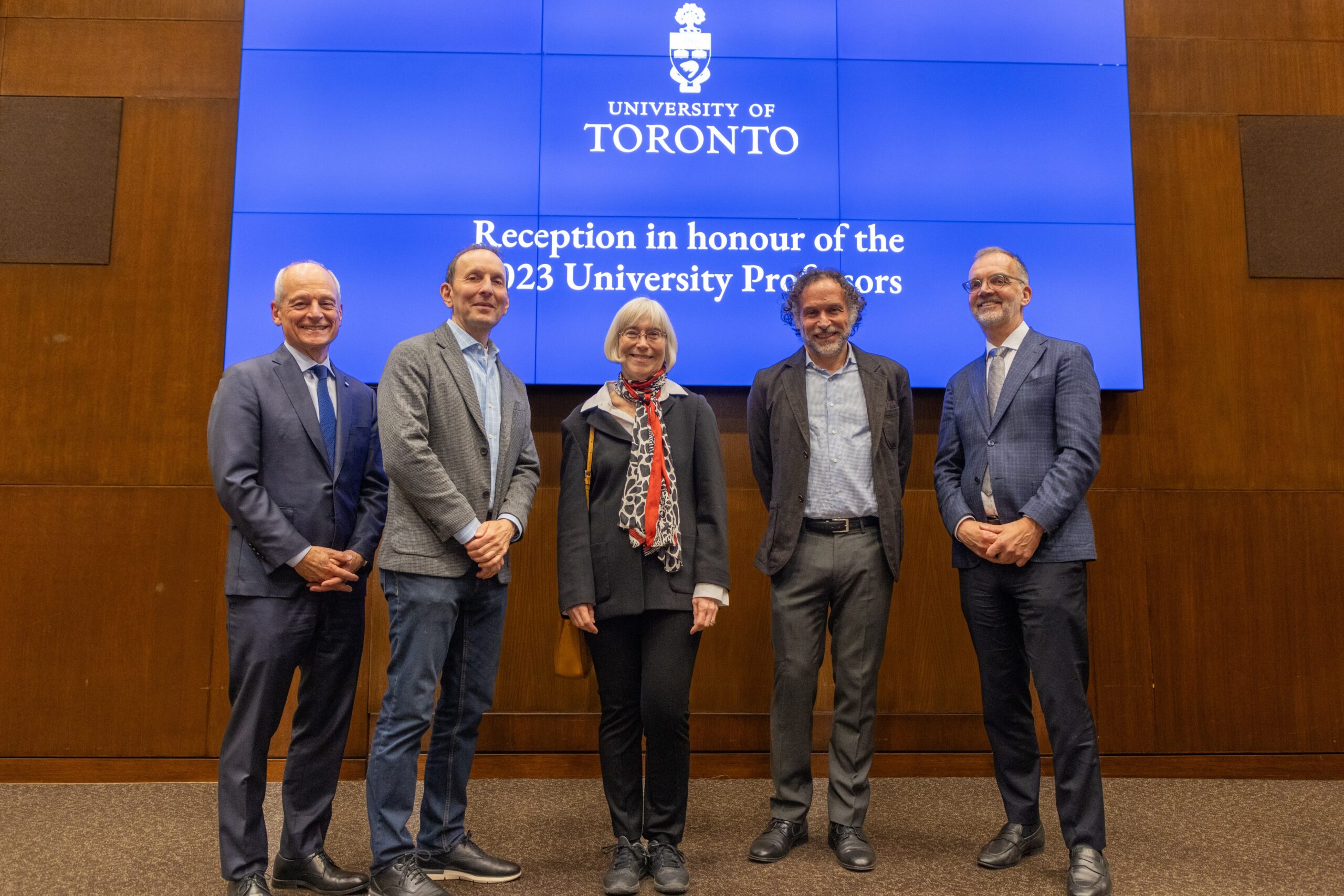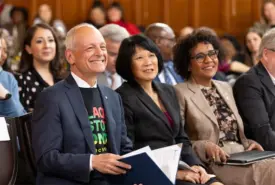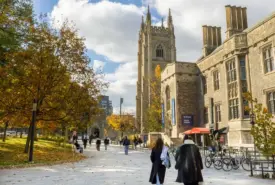Celebration for the 2023 University Professors


Check against delivery
Introduction
Let me begin by extending my sincere appreciation to Mr. Koji Omi for the kind invitation to be a part of the STS Forum this year and to be here with you today.
As our Chair has noted, urbanization is a major force reshaping societies around the world. Increasingly, the economic and social success – and the political stability – of nations will be tied to the success of their cities…
My point this morning is that universities will play a critical role in this process. To expand upon this idea, let me offer several concrete examples of how the University of Toronto has become an active participant in city-building in the Toronto region.
In this work, we are motivated by two simple ideas: first, as a public university, we have a responsibility to ensure the success of the city around us. Second, the more we do to make our host city stronger, the easier it is to attract and retain great faculty, and to recruit great students. Call it enlightened self-interest.
Presidential Adviser on Urban Engagement
As a large university with more than 200 experts on cities, on our three campuses, we saw a need to make this expertise more visible and accessible to community partners. So we created a new Presidential Adviser on Urban Engagement to act as a broker between the university and local actors such as:
The Presidential Adviser serves as a visible point of contact between the university and its host region, and provides ‘one-stop shopping’ for those outside the university who are looking for help.
Centre for Community Partnerships
Second, our Centre for Community Partnerships connects students and instructors to external organizations to support service-learning-based courses. There is a growing recognition – by our students, and by employers – of the value of work-integrated (and other forms of) experiential learning. Such experiences serve multiple objectives.Our students benefit from valuable, hands-on learning-by-doing. Their energy, creativity, and skills are unleashed to help community partners address current challenges and opportunities. Faculty advisers develop new research topics as a serendipitous consequence of working with external partners. And the university enhances its reputation as a city-building organization.
Four Presidents’ initiatives
Third, the presidents of Toronto’s four universities have joined forces on several collaborative projects. We realized that we share some common challenges, stemming from our co-location in the Toronto region – such as transportation congestion and the high cost of housing. We also realized that we could achieve more by working together than by going it alone, drawing on each institution’s particular strengths. Together we have jointly planned, funded and executed several projects, including:
Such collaboration has obvious benefits for the region and our universities.
Memorandum of Understanding with City of Toronto
Fourth, the University of Toronto has entered into an agreement with the City of Toronto, formalizing a commitment to work collaboratively to address pressing urban challenges. The MOU sets out responsibilities, resources, and expectations of each party. It enumerates a set of issues to be addressed in partnership:
The City benefits by getting access to our specialized expertise.We benefit by expanding internship opportunities for our students and applied research opportunities for our faculty.
School of Cities
Finally, the University of Toronto has just established a new School of Cities. The School is an interdisciplinary platform for urban research, teaching and outreach, focusing on applied research and external engagement. It draws on multiple disciplines, including Geography, Planning, Engineering, Architecture, Management, Education, and Public Health. It will leverage our three-campus structure to provide both central-city and suburban perspectives on our most pressing urban challenges. By bringing an interdisciplinary approach to the study of cities, it has a clear mandate to build capacity within municipal and regional governments, and to create a comprehensive evidence base to inform urban policy making.
Conclusion
Let me conclude where I began.
These initiatives by the university should be understood as acts of enlightened self-interest: they benefit both our host city and the university. Indeed, the relationship between a university and its host urban region is symbiotic in nature. Improvements and advances undertaken by one partner benefit both partners.
I hope these comments resonate with your own experience, and stimulate conversation.
It has been a great opportunity – and a privilege – to inspire my institution to embrace a greater role in city building.
Thank you for your kind attention.



